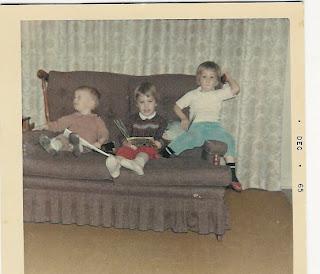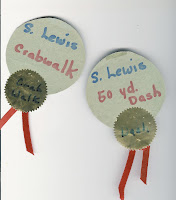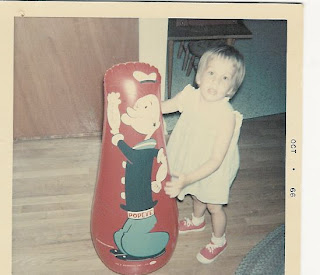Next month, I'm leading two writing workshops at the 26th Annual Christopher Newport University Writers' Conference.
WORKSHOP ONE
Growing a Novel: How to Keep your Ideas, Manuscripts, and Hopes Alive
Why is it so hard to turn one Great Idea into one Great Novel? How do you prevent your own expectations and doubts from killing the thing you're trying to grow? What specific techniques can you use to nurture ideas, plots, and characters so that they transform into actual words on a page, and then pages in a book? Start to finish, we'll look at what it takes to wind up with a living, breathing novel.
WORKSHOP TWO
Would Somebody Please Tell Me What to Say?
Are you better suited to writing a YA novel about teenage sex or a counting picture book called Ten Aged Socks? This is a look at the various genres in the children's book field, and a discussion about that elusive creature, Voice. Is it possible to write however and whatever the market demands? Or are we, thankfully, only required to write what we can?
What do you think? Useful? Interesting? Rather pick lint off your pants than attend either of these?
If you have suggestions about anything I should include---resources, books, websites, strategies, etc.--- please comment! (I promise I'll credit you at the workshop and thank you in my heart of hearts many, many times over.)
new posts in all blogs
.jpg?picon=848) By: Sara Lewis Holmes,
on 2/19/2008
By: Sara Lewis Holmes,
on 2/19/2008
Blog: Read Write Believe (Login to Add to MyJacketFlap)
JacketFlap tags: CNU Writers' Conference, teaching writing, Finding Your Writer's Voice, CNU Writers' Conference, teaching writing, Finding Your Writer's Voice, Add a tag
.jpg?picon=848) By: Sara Lewis Holmes,
on 1/22/2008
By: Sara Lewis Holmes,
on 1/22/2008
Blog: Read Write Believe (Login to Add to MyJacketFlap)
JacketFlap tags: Writing, training for writers, Exercise and Writing, Finding Your Writer's Voice, Add a tag
...but hey, my instincts were to make that couch work for me and not the other way round, you know?
It continued with my love of gym class. P.E. was fun for me---we did jump rope, and square dancing, and learned how to play volleyball and had races. I treasured the ribbons I won at field day, and competed vigorously to earn the coveted Presidential Physical Fitness Award.
Viewing: Blog Posts Tagged with: Finding Your Writers Voice, Most Recent at Top [Help]
Results 1 - 2 of 2
Blog: Read Write Believe (Login to Add to MyJacketFlap)
JacketFlap tags: CNU Writers' Conference, teaching writing, Finding Your Writer's Voice, CNU Writers' Conference, teaching writing, Finding Your Writer's Voice, Add a tag
0 Comments on Thank you (in advance) for making me look wise and writerly as of 1/1/1900
Add a Comment
Blog: Read Write Believe (Login to Add to MyJacketFlap)
JacketFlap tags: Writing, training for writers, Exercise and Writing, Finding Your Writer's Voice, Add a tag
"I think the healthy thing for man---for reflective nature---is to think with the whole body; then you get a full harmonious thought, like violin strings, vibrating in unison with the hollow box. But I think that when thoughts come from the brain alone...they are like tunes played on the squeaky part of the first string..." Stephane Mallarme, writing to Eugene Lefebre, May 17, 1867I stumbled upon that magnificent quote many years ago in the book Finding Your Writer's Voice by Thaisa Frank and Dorothy Wall. The authors go on to say:
"Like Mallarme, you can make your voice resonate from different parts of your body...Imagine that your entire body is a vehicle for speech and sound---a luminous and versatile transmitter. Let your stomach write a paragraph. Then your heart. Now let your forehead speak. Does your writing change as your body focus shifts? Are the rhythms different? The emotions? The sounds?"I've been an exercise addict for years now. I'm a much more disciplined and intuitive athlete than I am a writer. All right, I didn't start out so disciplined...
...but hey, my instincts were to make that couch work for me and not the other way round, you know?
It continued with my love of gym class. P.E. was fun for me---we did jump rope, and square dancing, and learned how to play volleyball and had races. I treasured the ribbons I won at field day, and competed vigorously to earn the coveted Presidential Physical Fitness Award.
Field Day Loot
In college, I took classes in modern dance, fencing, and racquetball. I rode my bike to class. My husband and I went on hikes as dates. After college, I joined the aerobic dance craze and did Jazzercize. When I got pregnant, I walked for miles and miles and asked my mother-in-law to insert a stretch panel into the belly of my favorite leotard. There's a picture of me, somewhere, after my daughter was born, with her on my stomach while I'm doing sit-ups. In the years since, I've tried skiing, boxing, yoga, weight-lifting, spinning, boot camp, running, golf, ballroom dancing, and Pilates.
Oh, how I wish I had been writing all those years with the same intensity that I was exercising! What masterworks I could have produced! But somehow, it took me years and years before I transferred the wisdom of my body to my writing life.
What my body told me:
1) Have fun.
2) Be brave.
3) Go beyond what you think you can do.
4) Don't worry if you mess up. You'll get it, eventually.
5) Nourish yourself. It's not optional; you must do it to stay strong.
6) Cut out the negative self-talk. Turn your critic into a coach.
7) You must be willing to look silly to learn something new.
8) Focus. Pay attention to the sun on your face, to the sting as your hand hits the bag, to the changes in your breathing. What you're doing right now is beautiful; everything else can wait.
I think the most important thing I learned was that my body was not my enemy. It was my teacher and my best ally. It knew more about what I could do than my head did.
Likewise, good writing comes from what we know in our bones to be true. No matter how blocked or frustrated our minds are, our bodies know what we want to say. They're charged with it; they store every hurt and hope; and they literally are the instruments that produce our voices. (Why do you think they call it "body language"?)
You don't have to be a fitness addict like me to learn something from your body. Try this: open and close your hands several times, so you make fists, and then release them.
I can't tell you what will happen next. But your body just said something to you. Listen. Write it down. Everything else can wait.
In college, I took classes in modern dance, fencing, and racquetball. I rode my bike to class. My husband and I went on hikes as dates. After college, I joined the aerobic dance craze and did Jazzercize. When I got pregnant, I walked for miles and miles and asked my mother-in-law to insert a stretch panel into the belly of my favorite leotard. There's a picture of me, somewhere, after my daughter was born, with her on my stomach while I'm doing sit-ups. In the years since, I've tried skiing, boxing, yoga, weight-lifting, spinning, boot camp, running, golf, ballroom dancing, and Pilates.
Oh, how I wish I had been writing all those years with the same intensity that I was exercising! What masterworks I could have produced! But somehow, it took me years and years before I transferred the wisdom of my body to my writing life.
What my body told me:
1) Have fun.
2) Be brave.
3) Go beyond what you think you can do.
4) Don't worry if you mess up. You'll get it, eventually.
5) Nourish yourself. It's not optional; you must do it to stay strong.
6) Cut out the negative self-talk. Turn your critic into a coach.
7) You must be willing to look silly to learn something new.
8) Focus. Pay attention to the sun on your face, to the sting as your hand hits the bag, to the changes in your breathing. What you're doing right now is beautiful; everything else can wait.
I think the most important thing I learned was that my body was not my enemy. It was my teacher and my best ally. It knew more about what I could do than my head did.
Me, learning from my friend, Popeye
Likewise, good writing comes from what we know in our bones to be true. No matter how blocked or frustrated our minds are, our bodies know what we want to say. They're charged with it; they store every hurt and hope; and they literally are the instruments that produce our voices. (Why do you think they call it "body language"?)
You don't have to be a fitness addict like me to learn something from your body. Try this: open and close your hands several times, so you make fists, and then release them.
I can't tell you what will happen next. But your body just said something to you. Listen. Write it down. Everything else can wait.
3 Comments on The Exercise of Writing: Writing with your whole body, last added: 1/22/2008
Display Comments
Add a Comment






Sara: These are both great topics for workshops and I would definitely be more interested in them than picking lint off my pants (although in my case, it would be dog hair).
Workshop #2 is the more intriquing to me on a personal level. Here's a little anecdote about perhaps being better suited to one genre over another. About six years ago I decided to break outside my genre box and write a picture book. I've never tried to write one before. It was set in a little motel in the Smoky Mountains - with an old lady and a couple of kids. It was a decent, so-so pb. My editor called it "most promising" (which, as we writers knows - means "good but needs a lot of work".
She went on to say "But there's something that keeps it from being exactly right. It may have been that feeling that prompted you to wonder if it needed "more meat" I've read it many times over and am not convinced that I can put my finger on the precise problem."
Hmmmm. So I pulled that manuscript out and stared at it and stared at it and was totally completely 100% frozen. I could not change one word of it.
I let it simmer for a while and then I eventually had my eureka moment. The problem with the pb ms was that I knew so much more about the characters. And I knew in my heart that there was much more to their story. I knew that the pb was only one thin layer of the story I wanted to write.
So I sat down and turned that pb into a mid grade novel - which became GREETINGS FROM NOWHERE.
I confess that at first I felt that I had failed in some sense - that I had proven that I was unable to write a picture book. But then I came to my senses and realized that I was writing what I needed to write and that didn't mean that I still can't write a picture book.
Sorry this is so long - but it's just personal experience with knowing the difference between writing what you THINK you want to write and writing what you really NEED to write.
And as for writing to market - I used to never think about that at all - but now my self-censor devil rears his ugly head sometimes and makes me write differently than my heart wants to.
http://greetings-from-nowhere.blogspot.com/2007/07/oh-to-be-young-and-dumb-again.html
Sorry this is so long!!! You got me thinking too much!
Barbara O'C
Barbara, this is great! Not too long at all. I may have to quote you on the tale of the Picture Book that Wasn't.
I do think that we approach our stories from many avenues, and if Greetings From Nowhere came up the picture book path, then that's the way it needed to get there. It might have lost its way if it had tried the route your other novels had taken. I sometimes write what I think are going to be play scripts, but later turn out to be fleshed out scenes of dialog. And I have a poem that is morphing into a picture book (I think.)
I think one of the reasons revision is so necessary is that stories resist our attempts to put them in boxes. They insist that we revise the words we used to tell them so that their true shape can be seen, even if that means the writer is working in the dark at first.
Sara- Regarding #2 and strategy: this is thought provoking, because I recently had an experience similar to what Barbara described.
I'd been working on a new PB story for a while and was running up against a brick wall with the pictures because I had too much text, and not enough room for illustrations. I decided there was enough backstory to try to expand the story into an early chapter book. (Mind you, I'd never written one before, but it had been in the back of my mind to try!)
So, I began, and was fairly pleased with how it was going... until I realized that it was a completely different story from the PB version. Not better, not worse, just different.
In the end I decided to go back to the PB version, because that's the story I wanted to tell. I'll still go back and try a chapter book at some point-- but with a new story. At least now I know I can do it.
So I guess for me the bottom line is-- it's good to stretch yourself and try something a few different ways, but-- which genre best suits the story you want to tell?
As far as writing to the market-- I'm still struggling with that one! Maybe a good solution would be to write what you can, but go back during revisions and see if there is a way to make it more marketable. Ugh, that's tough sometimes!
Wish I lived closer-- I'm sure you'll be smashing!
Aye-- I meant to say-- similar experience to Barbara's, but with opposite outcome.
Uh oh... neurotic-writer mode kicking in! :-)
I would find both workshops interesting. I recently had a similar experience to Barbara's -- a picture book conceived many years ago, the feedback was that the idea was good, but there should be more -- so I made it into an early chapter book. It felt so liberating to have actual chapters to stretch myself out in!
The novel is a form that still intimidates me, so I would probably hang on your every word, especially cued in about creating scenes to form a good story arc, with emotional and action plots.
I would also be interested in different novel forms --as in epistolary and verse, and to hear as much as possible about character development.
I think you're going to be smashing!!
Go, Sara! Go Sara! How awesome! Those all sound AMAZING. I have no experience doing anything other than teaching freshman writing students, but this sounds amazing! I'll think about it and let you know if I come up with something you might include...
So, workshop 2. Here's my little slice o' life tale: After I sold my first picture book (very easily and quickly) I began to really think about what I ought to do to follow up that sale with another. And I thought and thought and wrote and wrote. From head, not from gut. I wrote what I thought I needed to write in order to sell. I read gadzillions of picture books and I wrote straight-forward narrative tales that were almost all solid enough to get very nice and encouraging letters from fabulous editors, with invitations to send more. But they didn't get sold. Not a one. Until one of my less traditional, straight-forward little pieces that I originally wrote in a rush in the middle of the night DID SELL. To my dream editor. Who said she wanted to see everything. And I sent her all the stuff that hadn't sold and she didn't buy it either. It was really good, she said, but not transcendent. "I think," she said, "that what you're really good at is lyric, sound, image, the turn of a phrase, rhyme, rhythm, yadda yadda." Oh. Duh. So NOT plot, character and conflict. Right. So I stopped writing what I thought I needed to write in order to sell, and I started to write what came to me in the middle of the night (even though I then have to work very hard at it by day) and lo and behold, the next one sold. And now I'm working on a third. And the lesson to me is to write what needs to be written intuitively. To create by gut, not marketplace. To be true to my own creative urges because those are the ones that read true on the page...